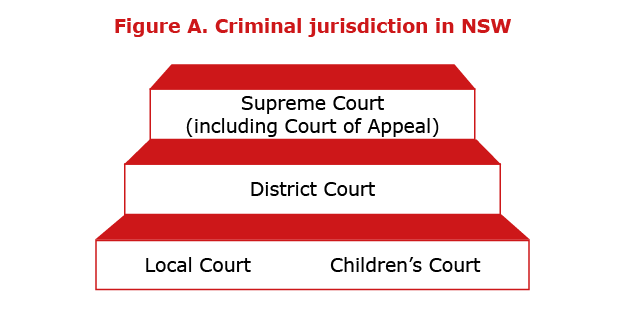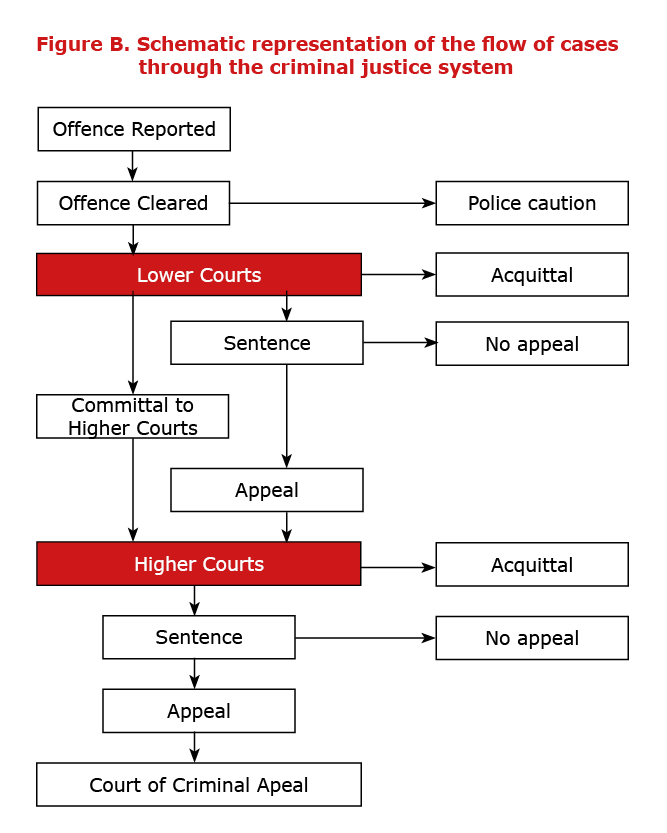Automatic language translation
Our website uses an automatic service to translate our content into different languages. These translations should be used as a guide only. See our Accessibility page for further information.

As shown in Figure A, the NSW criminal justice system consists of:
The Local Court
The Children's Court
The District Court
The Supreme Court (including Court of Appeal)
The Local Court deals with most criminal charges against adult offenders. The Local Court also holds committal hearings for indictable criminal matters (more serious offences). Some indictable matters may be determined by the Local Court if the defendant so elects. The Children's Court deals mainly with juvenile offenders (aged 10-17 years). In some circumstances, charges against offenders aged 18 years or over may also be heard before the Children's Court. Local and Children's Court proceedings are conducted by a magistrate. There are no juries in these courts.
The District Court deals with more serious offences committed by both juveniles and adults. District Court proceedings are presided over by a District Court Judge. The District Court hears trials, sentencing matters and appeals against decisions made in the Lower Courts. In most cases where the accused person pleads not guilty, trials are held before a judge and jury. In certain circumstances the accused may elect to be tried before a judge alone. If the jury delivers a verdict of guilt, the judge determines an appropriate penalty. When a person admits guilt there is no jury trial and the matter proceeds to sentencing.
The Supreme Court conducts trials before a judge and jury for a few offences which are more serious than those heard in the District Court, such as murder. As in the District Court, in certain circumstances the accused may elect to be tried by a judge alone. The Supreme Court may also deal (without a jury) with certain offences which carry very heavy fines (e.g. water or air pollution offences). The proceedings are presided over by a Supreme Court Judge.
The Court of Criminal Appeal, which is a special division of the Supreme Court, hears appeals against convictions and/or sentences from the District Court and from the Supreme Court. An appeal is conducted in the presence of three Supreme Court Judges. The Court of Criminal Appeal is the ultimate court of appeal for criminal matters in NSW.
As an alternative to entering the court system, juveniles charged with relatively minor offences may be dealt with by a system of formal police cautions. A caution is issued by a senior police officer in the presence of the offender and his/her parent or guardian.
Figure B shows the possible routes of cases through the criminal justice system in NSW.

Last updated: